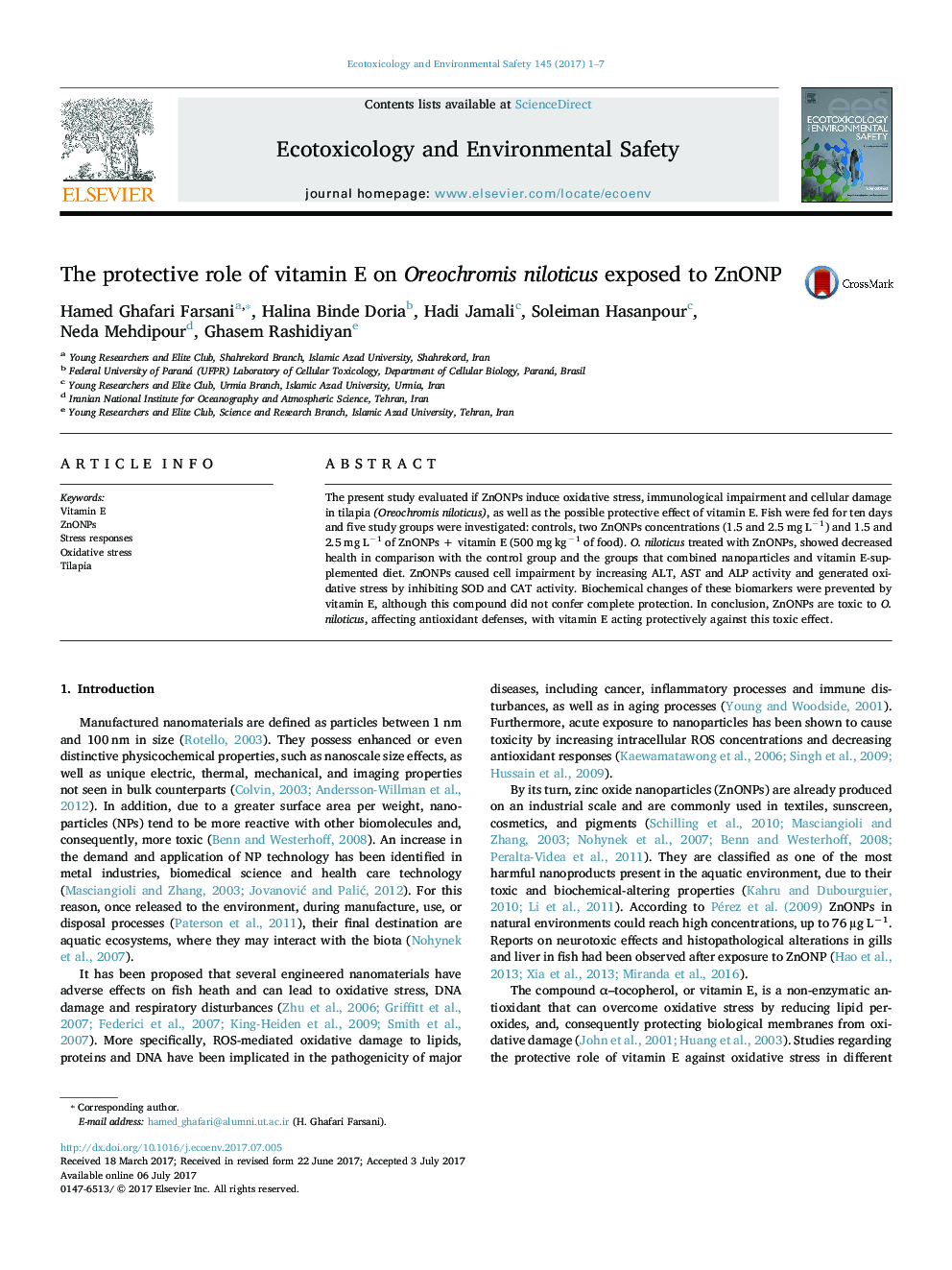| Article ID | Journal | Published Year | Pages | File Type |
|---|---|---|---|---|
| 5747708 | Ecotoxicology and Environmental Safety | 2017 | 7 Pages |
â¢ZnONP exposure caused stress in liver and heart and inhibition of antioxidant enzymes.â¢ZnONPs exposure did not alter the overall immunological response of fish.â¢Vitamin E played a protective role against nanoparticle toxic effects.
The present study evaluated if ZnONPs induce oxidative stress, immunological impairment and cellular damage in tilapia (Oreochromis niloticus), as well as the possible protective effect of vitamin E. Fish were fed for ten days and five study groups were investigated: controls, two ZnONPs concentrations (1.5 and 2.5 mg Lâ1) and 1.5 and 2.5 mg Lâ1 of ZnONPs + vitamin E (500 mg kgâ1 of food). O. niloticus treated with ZnONPs, showed decreased health in comparison with the control group and the groups that combined nanoparticles and vitamin E-supplemented diet. ZnONPs caused cell impairment by increasing ALT, AST and ALP activity and generated oxidative stress by inhibiting SOD and CAT activity. Biochemical changes of these biomarkers were prevented by vitamin E, although this compound did not confer complete protection. In conclusion, ZnONPs are toxic to O. niloticus, affecting antioxidant defenses, with vitamin E acting protectively against this toxic effect.
